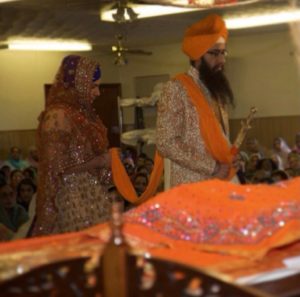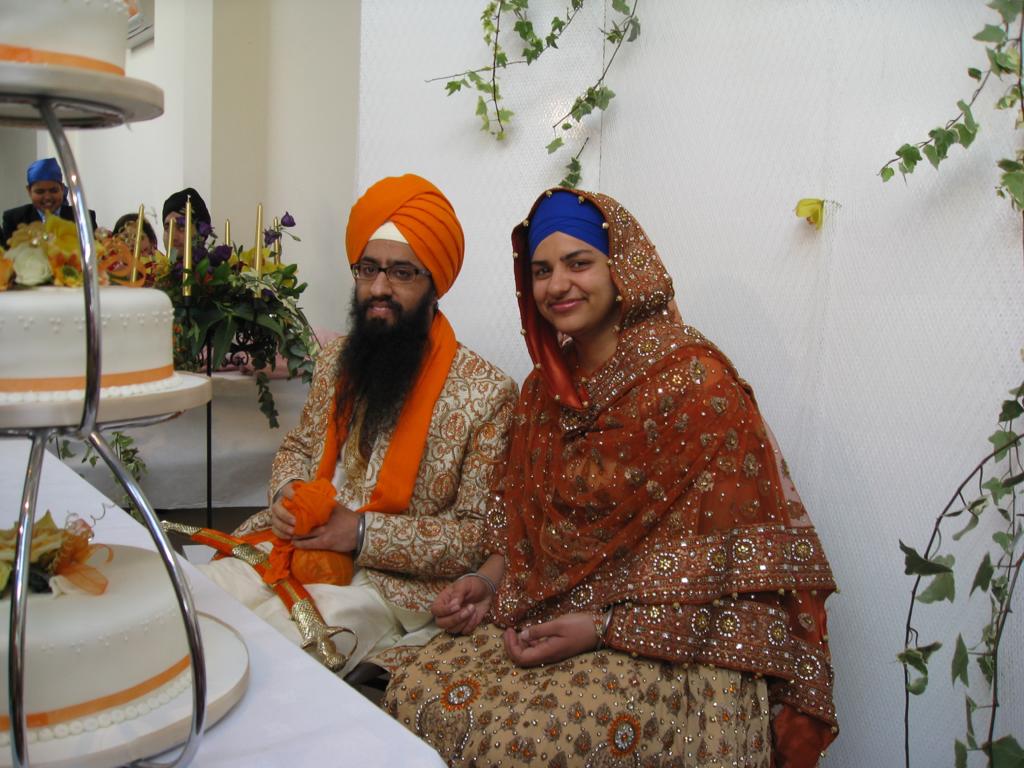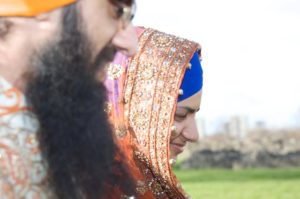Growing up and going to many Punjabi weddings from a young age, I always had the kind of wedding in mind that I wanted, when the time came, of course! For me, it consisted of all the cultural and superficial things that I had been exposed to, which I classed as being everyday life and just what we did. I grew up the youngest and only son, which brought its benefits and its pressures, which I was frequently reminded of by all that I knew.
Having gone through school, college and now into my final year of university, things would drastically change in my life. Looking back now, I was searching for something more from life; as I know now, that is when life tends to deliver in its unpredictable way. That was certainly the case in my life as one night’s decision would 180 my opinion on life; I mean that all I had believed about God had changed. This was through the experience of attending a Gurdwara (Sikh place of worship), what I had been searching for I had found in an instant, this would change the way I looked at marriage in the future and my wedding day in particular; I didn’t know that at the time.
As I went through the physical changes of adopting the Sikh way of life, I also began to work on my internal spiritual self; this led me to become fully initiated through the ceremony of Amrit (Spiritual rebirth). This is where I made a declaration to the eternal Guru of the Sikhs (SGGS ji) that I would uphold the tenants of my faith from then on.
Through all the changes in my life, it became evident that the thoughts of wanting that big Punjabi wedding were simply not me anymore. It was now more about the ceremony and marriage’s spiritual aspect than the cultural and superficial norms we have all become accustomed to.
 A few years later, when I met a suitable partner who was following the same spiritual path as I, we began to discuss the type of wedding day we both wanted. For us, the main focus was the actual ceremony called the Laavan where, as a couple we were to walk around Sri Guru Granth Sahib Ji (Sikh Scriptures) declaring to God and the congregation our commitment to each other. We hadn’t considered any other celebrations for the day.
A few years later, when I met a suitable partner who was following the same spiritual path as I, we began to discuss the type of wedding day we both wanted. For us, the main focus was the actual ceremony called the Laavan where, as a couple we were to walk around Sri Guru Granth Sahib Ji (Sikh Scriptures) declaring to God and the congregation our commitment to each other. We hadn’t considered any other celebrations for the day.
When we spoke of our plans with our families, we very quickly realised that we had forgotten about the cultural events that normally take place, this is because they were simply not important to us anymore. However, they were still things that were important to our parents and extended family members. Looking back, it was about compromise, but at that moment it’s not always that easy to see it that way.
Our parents naturally had hopes and desires for our day; being a parent now myself, I can understand their perspective; however, it was all culturally based. The expectation was to make sure guests were entertained and served in the same way they had partaken in other weddings, the thinking that they must now also give back somehow. We did, however, reach one compromise that we were both happy with. We had no reception party, and this is because we did not want alcohol and meat served to celebrate our wedding due to us following a non-alcoholic and vegetarian way of life.
The cultural Sikh wedding consists of minimal guests attending the Gurdwara (Sikh place of worship). This is where there is a community kitchen serving vegetarian food for all. The cost of this is meagre as the curries are made for mass consumption. The congregation sit on the floor and eat from steel plates – therefore, no table/chairs or crockery hire is needed, eliminating another large expense. The cost of ingredients, gas, electricity etc., is from the Gurdwara donations and does not impact the wedding party. Usually, the cultural Sikh wedding is where the guests are keen to skip the ceremony and join the bride and groom at the banqueting venue for the reception. This is where the cost of catering, decoration, alcohol etc. can run into the hundreds of thousands. Our choice to keep the wedding limited to the Gurdwara was the best decision, even with our parents’ 700 guests.
Ultimately, the lead up to the wedding day was a challenge for the both of us. We were trying to navigate our way through having a meaningful naked wedding, but our families were unable to see or understand this. It hurt us, but looking back, we see that even with over 700 guests, we were able to strip back the day with no reception and no major expenditures that would have been unimportant to us.
Our naked wedding was beautiful. We all ate lunch in the Gurdwara Sahib (Sikh place of worship). We had the opportunity to speak to guest from near and far. We enjoyed an extended kirtan divan (Singing of hymns) by our friends and family and, most importantly, had extremely focused minds during the actual ceremony. We talked about it for months afterwards (we still do now), about how, with 700 people watching, it felt like it was just myself, my wife and Guru (God). Through the challenges, we decided that the wedding day may not be exactly what we wanted, but the marriage was ours to shape – with God at its centre. This collective decision was like a prayer. It enabled us to push back and fight for what we wanted and compromise when needed. The wedding day was the first step to our journey together to discover and realise God. 13 years and four children later, we still appreciate the experience we had.




